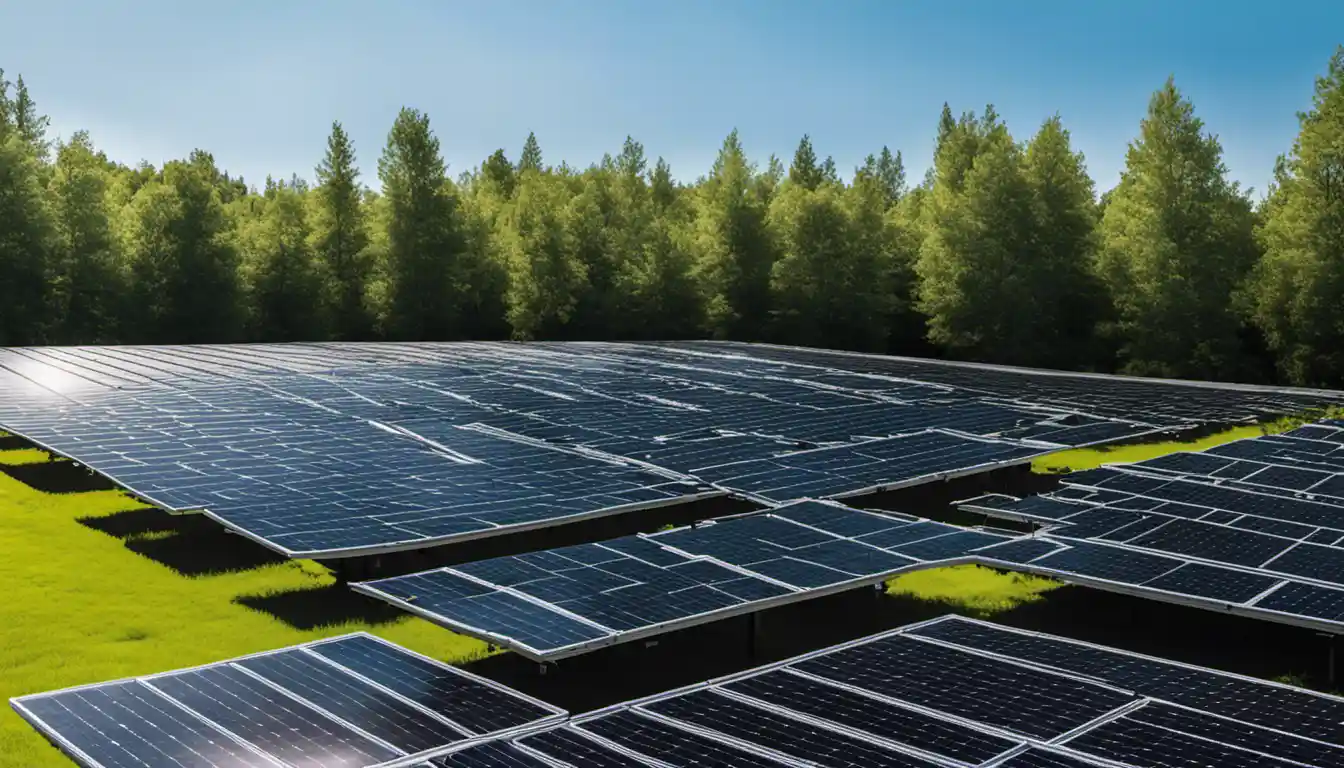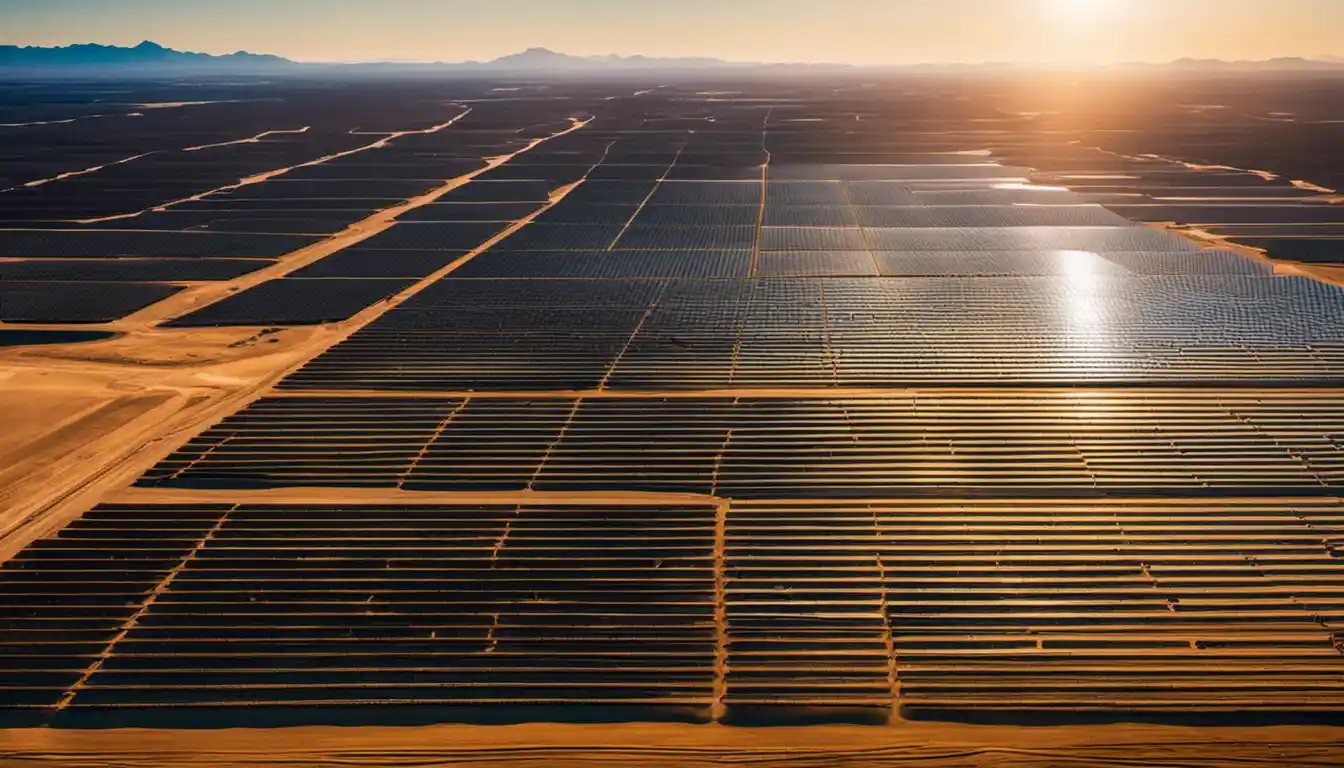Benefits of Solar Energy Over Fossil Fuels
Solar energy is generally considered better than fossil fuels as it is a sustainable, limitless, and clean source of energy. Unlike fossil fuels, it doesn’t produce harmful emissions or contribute significantly to global warming. However, cost, technology, and regional sun exposure can be limiting factors for its implementation.
Providing Control Over Electricity
One of the major benefits of solar power over fossil fuels is that the adoption of solar technology allows consumers to have more control over their own energy production. No longer are homeowners at the mercy of fluctuating fossil fuel prices or the dreaded mid-summer blackouts. Solar panels generate electricity from a source that is free and accessible: the sun. Thus, solar energy democratizes power generation — it’s decentralized, putting power (literally and figuratively) in the hands of consumers.
Clean, Renewable, and Carbon Neutral
Solar energy, unlike fossil fuels, is a renewable source of power. Fossil fuels take millions of years to form, while solar energy can be harnessed each day. Furthermore, as we burn fossil fuels to produce energy, resulting greenhouse gas emissions contribute to climate changes and global warming. Solar power, on the other hand, does not emit any greenhouse gases when generated. Its carbon footprint, from manufacturing to disposal, is a fraction of what fossil fuels leave behind – which leads us to why solar energy is a superior choice to burning fossil fuels.
Home Value Increase with Solar Installations
Another reason why solar energy is better than fossil fuels lies in its impact on property values. A study from the Lawrence Berkeley National Lab found that homes with solar power systems sold for a premium over similar homes without photovoltaic systems. When installing solar panels, you are not only saving on energy costs but also investing in your home’s future value.
Tax Breaks and Financial Incentives for Solar Power Adoption
Governments worldwide encourage adoption of solar energy through tax breaks, rebates, and incentives. In the U.S., homeowners can take advantage of the Federal Solar Tax Credit, which allows a deduction of 26% of the cost of installing a solar power system from federal taxes (expected to decrease to 22% in 2023). This kind of support plays a role in leveling the economic playing field, making solar energy a good alternative to fossil fuels.
The Economic Factor: Solar Power vs Fossil Fuels Costs
Falling Costs of Solar Installation

The cost of solar energy has seen a dramatic decrease. According to the International Renewable Energy Agency (IREA), the cost of installing solar panels fell by nearly 70% between 2010 and 2020. With prices continuing to drop, solar technology is becoming a progressively affordable alternative to fossil fuels – bolstering the argument for solar power vs fossil fuels, economically speaking.
Comparing the Cost of Solar Energy and Fossil Fuels Over Time
A unique aspect of solar power is its long-term cost-benefit. While the upfront costs of solar installations can be high, over time the fact that the energy source (sunlight) is free means recurring costs trend toward zero. It’s also noteworthy that solar panels have a long lifespan – often 25-30 years or more, providing households with several decades of cost-effective, clean energy.
Comparing Efficiency: Solar Panels vs Fossil Fuels
Efficiency of Solar Energy
Solar panel technology is constantly improving, with efficiency rates increasing significantly over the years. High-quality solar panels achieve an efficiency of 20% or more today, doubling the efficiency rates from just a decade ago. While it’s true that this is still less efficient on a per unit basis than fossil fuel sources, the crucial difference between fossil fuels and solar energy is that the sun’s energy is unlimited and free.
Efficiency of Fossil Fuels
Fossil fuels, on the other hand, have high efficiency rates. However, a significant amount of energy is wasted in the form of heat during power production. Additionally, fossil fuel resources are finite – and growing more expensive to extract as the easy-to-reach sources are depleted. Coupled with the environmental impact of burning fossil fuels, the overall efficient use of resources tips in favor of solar power.
Comparing Environmental Impact: Solar Power VS Fossil Fuels
Environmental Impact of Solar Energy
From an environmental perspective, solar power is a clear winner. It produces energy without releasing harmful carbon dioxide, helps reduce dependence on fossil fuels, and plays a crucial part in slowing down climate change. While it’s true that the manufacture and disposal of solar panels come with certain environmental concerns, these are minor when compared to the harm caused by the pollution, toxic waste, and environmental degradation linked to fossil fuel extraction and use.
Environmental Impact of Fossil Fuels

Competing on the environmental front, fossil fuels fall short. The extraction and burning of fossil fuels produce significant greenhouse gases such as carbon dioxide, contributing heavily to climate change. Recent incidents of oil spills have further shone a light on the catastrophic ecological damage caused by fossil fuels – reinforcing why solar energy is better than burning fossil fuels.
Global Trend Towards Renewable Energy
Role of Solar and Wind in Replacing Fossil Fuels on the Grid
Around the world, a revolution is happening on our power grids. Solar and wind energy, once considered niche and impractical alternatives, are rapidly replacing fossil fuels as the primary energy source. China, EU countries, and the U.S are leading this charge. The growth of renewable sources of energy is so fast that last year, renewables outpaced fossil fuels in Europe.
Job Creation in the Renewable Energy Sector
The renewable energy sector isn’t just good for the environment; it’s also a catalyst for job creation. The U.S Bureau of Labor Statistics lists wind turbine service technicians and solar photovoltaic installers as the two fastest-growing occupations, both predicted to grow by 63% and 51% respectively by 2026. These are compelling numbers that show how our shift to cleaner energy not only makes environmental sense but economic sense too!
Investment in Clean Energy
With the urgent need to mitigate climate change impacts, private sector investment in clean and renewable energy has surged. In 2020, despite the economic impact of the pandemic, global renewable energy investment increased by 5% to $288.9 billion, surpassing the investment in new coal and gas-fired power generation. This investment trend underscores the growing confidence in renewable energy – proof that is solar energy is a good, if not better, alternative to fossil fuels.
Why Solar Energy is a Better Alternative
Reduction in Fossil Fuel Dependence

By switching to solar energy, we can significantly reduce our dependence on finite and geopolitically contentious fossil fuel reserves. This is increasingly important as the demand for energy increases globally, and as nations look for ways to achieve energy independence.
Solar Energy’s Contribution to Reducing Carbon Emissions
According to the U.S. Energy Information Administration (EIA), the energy sector is responsible for about 73% of total U.S. greenhouse gas emissions. Solar energy offers a solution to this problem. In its lifetime, a 2.5 kilowatt solar power system can offset the same amount of CO2 produced by an average passenger car driving over 226,000 miles – this embodies why solar energy is better than fossil fuels.
Long-Term Operating Prospects of Solar Projects
Solar power systems have a long lifespan, and with minimal moving parts, they require much less maintenance than traditional power sources. Compared to the ongoing costs and environmental impact of extracting and burning fossil fuels, a solar power system has outstanding longevity and endurance.
Ways to Use Solar Energy Efficiently
Implementing Solar Energy in Your Home
Transitioning to solar energy usage in the home is simpler than most think. The first step requires assessing your home’s compatibility with solar power installations, which involves checking factors like roof condition, sun exposure, and local permitting requirements. Learn more on this topic and explore various useful tips about alternatives to regular solar panels for home on our dedicated guide here.
Commercial and Industrial Use of Solar Power
The adoption of solar energy isn’t just for homeowners. An increasing number of businesses and industrial sites are recognizing the value of solar energy. By reducing operation costs and showing commitment to sustainability, businesses are enhancing their brand reputation and competitiveness.
Ways Solar Energy Can Replace Fossil Fuels in Everyday Use
Solar energy can play a part in all aspects of our lives. Beyond illuminating our homes and powering our offices, solar energy could charge our cars, heat our water and power our entertainment devices. The future of solar energy is not just as an alternative but as a holistic replacement for fossil fuels.
So, is solar energy better than fossil fuels? The answer is resounding yes. It’s cleaner, more sustainable, increasingly efficient, and despite the upfront costs, it’s economically a worthy contender. As we continue to evolve towards a more sustainable future, solar energy shines bright as a pivotal player in the world’s energy landscape.



